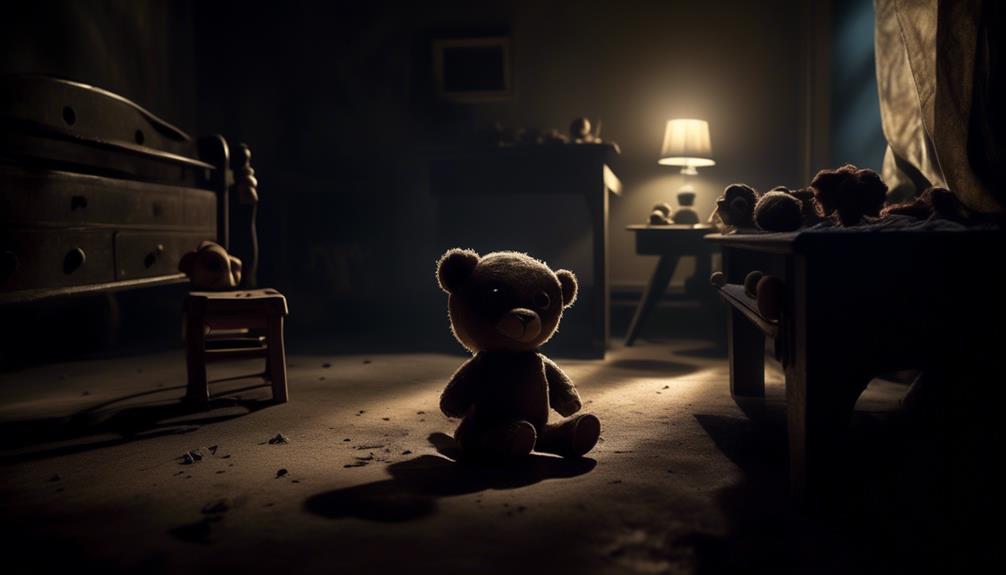Dealing with a father who has Borderline Personality Disorder often brings to mind the familiar phrase “walking on eggshells.”
Living with a parent who has BPD can present a multitude of challenges that can deeply impact a child's emotional well-being and sense of self.
Understanding the complexities of this situation and exploring effective coping mechanisms is essential in navigating this complex dynamic.
Key Takeaways
- Fathers with BPD exhibit aggressive behavior and emotional manipulation.
- BPD in fathers leads to emotional instability and household chaos.
- Coping involves setting boundaries, seeking therapy, and educating family.
- Effective communication with BPD fathers requires assertiveness, empathy, and support.
Understanding Borderline Personality Disorder in Fathers
Understanding Borderline Personality Disorder in fathers involves recognizing the distinct behavioral patterns and challenges that may impact their parenting and relationships. Fathers with BPD may exhibit aggressive behavior, emotional manipulation, and controlling parenting tendencies. These individuals often struggle with managing their emotions, leading to outbursts of anger and rage, which can be perceived as emotional abuse within the family dynamic. Substance abuse problems are also prevalent among fathers with BPD, contributing to further instability in the household.
Moreover, fathers with BPD may engage in judgmental behavior towards their family members, creating a tense and volatile atmosphere at home. The family may experience frequent rages and conflicts due to the unpredictable nature of the father's emotional responses. It's crucial to identify these signs early on to provide support and interventions for both the father and the family members affected by his BPD. By understanding these behaviors and challenges, we can work towards fostering healthier relationships and parenting dynamics within families impacted by BPD.
Impact of BPD on Family Dynamics

Fathers with Borderline Personality Disorder significantly impact family dynamics by creating an environment characterized by intense emotional instability and unpredictability, leading to challenges in establishing consistent boundaries and maintaining healthy relationships. Children raised by fathers with BPD may experience emotional turbulence and uncertainty, as the father's unpredictable behavior can disrupt the family's equilibrium. This instability can make it difficult for children to feel secure and develop a sense of trust in their parent. Moreover, the struggles BPD fathers face in setting boundaries can result in blurred lines between appropriate and inappropriate behavior, leading to confusion and chaos within the family dynamic.
Family members often find themselves navigating a complex emotional landscape, trying to anticipate and manage the father's extreme reactions. The impact of a BPD father's emotional volatility can be profound, affecting the emotional well-being and stability of all family members. This disruptive influence can create tension, stress, and a sense of unease within the family unit, making it challenging to cultivate healthy relationships and interactions.
Coping Strategies for Family Members
To effectively navigate the challenges of living with a father who's Borderline Personality Disorder, family members must prioritize establishing and maintaining clear boundaries for their well-being and mental health. Recognizing the signs of emotional manipulation and judgmental behavior is crucial to protect ourselves from harm.
Seeking therapy can provide coping strategies and enhance communication skills when dealing with a BPD father. Additionally, educating ourselves and our family about BPD helps create a supportive environment for everyone involved.
It's essential to prioritize self-care amidst the difficulties and seek support from professionals or support groups to effectively navigate the complexities of living with a BPD father. By implementing these coping strategies and communication skills, we can foster healthier relationships and maintain our well-being while supporting our BPD father through his challenges.
Supporting a Father With BPD

Navigating the complexities of supporting a father with Borderline Personality Disorder involves encouraging him to seek professional help for therapy and treatment. By guiding our father towards therapy, we can provide him with the tools to manage his symptoms and improve his overall well-being.
It's crucial to educate ourselves about BPD to better understand our father's behaviors and challenges. Supporting our father in setting boundaries and enhancing communication skills can foster healthier interactions within the family dynamic.
Creating a supportive environment by educating our family about BPD can help reduce stigma and promote empathy towards our father's condition. Additionally, assisting our father in recognizing how BPD impacts his relationships and well-being can encourage him to prioritize his mental health.
Ultimately, by offering unwavering support and guidance, we can empower our father to navigate the complexities of living with BPD and seek the necessary help for his recovery.
Communicating Effectively With a BPD Father
When communicating with a father who's Borderline Personality Disorder, employing clear and assertive language is essential for establishing and maintaining boundaries. Expressing emotions calmly and directly can help navigate interactions with a BPD father.
It's crucial to acknowledge and validate the father's feelings while also upholding personal boundaries. Active listening and mirroring techniques can aid in understanding the father's perspective and promote effective communication.
Seeking support from a therapist or a support group specialized in BPD can provide guidance on how to communicate effectively with a father who's this disorder. By learning to communicate assertively, recognizing emotions, and actively listening, individuals can navigate conversations with a BPD father in a way that fosters understanding and mutual respect while safeguarding personal boundaries.
Frequently Asked Questions
How Do You Know if Your Father Is Borderline Personality Disorder?
When trying to determine if a loved one has borderline personality disorder, pay attention to their emotional responses, mood swings, and relationship dynamics. Watch for patterns of intense emotions, impulsive behaviors, and unstable sense of self.
Look out for recurrent conflicts, fear of abandonment, and self-destructive tendencies. Seek professional advice if these traits seem prevalent, as early intervention can lead to better management and support for the individual.
How Do You Deal With a Father With Bpd?
Dealing with a father who's BPD can be challenging. Setting clear boundaries and practicing self-care are essential.
Encourage your father to seek therapy and educate yourself about BPD. Support groups and therapy can provide you with coping strategies.
Communicate openly and honestly with your father while prioritizing your well-being. Remember that managing a relationship with a parent who's BPD requires patience, understanding, and self-compassion.
What Is a Borderline Father Like?
When dealing with a father with borderline personality traits, it's essential to understand that he may exhibit intense emotions, struggle with anger management, and engage in manipulative behavior. Recognizing signs like extreme mood swings, aggressive outbursts, and judgmental tendencies can help navigate interactions with him.
Establishing boundaries, seeking support, and practicing empathy can be valuable strategies when dealing with a father exhibiting borderline traits.
Can Someone With BPD Be a Good Father?
Yes, individuals with BPD can be effective fathers with the right support and treatment. By seeking therapy and developing coping strategies, fathers with BPD can manage symptoms, enhance parenting skills, and create a healthier environment for their children.
Understanding BPD's impact on parenting allows fathers to navigate challenges, build stronger relationships with their children, and excel as parents. With dedication and effort, individuals with BPD can indeed be good fathers.
Conclusion
In conclusion, navigating life with a Borderline Personality Disorder father can be incredibly challenging, but with understanding, boundaries, and support, it's possible to cope and heal.
One example is Sarah, who set boundaries with her BPD father and sought therapy to work through the emotional impact of his behavior. By taking these steps, Sarah was able to create a healthier relationship with her father and prioritize her own well-being.
Theresa is the visionary force behind Borderline Syndrom, steering our content towards excellence and integrity. With a keen eye for detail and a deep understanding of BPD, she ensures that our articles, stories, and resources offer our readers valuable insights, hope, and guidance. Theresa’s leadership not only shapes our editorial direction but also fosters a space where voices on BPD are heard and respected.










